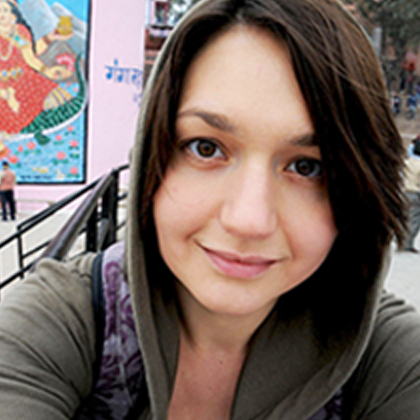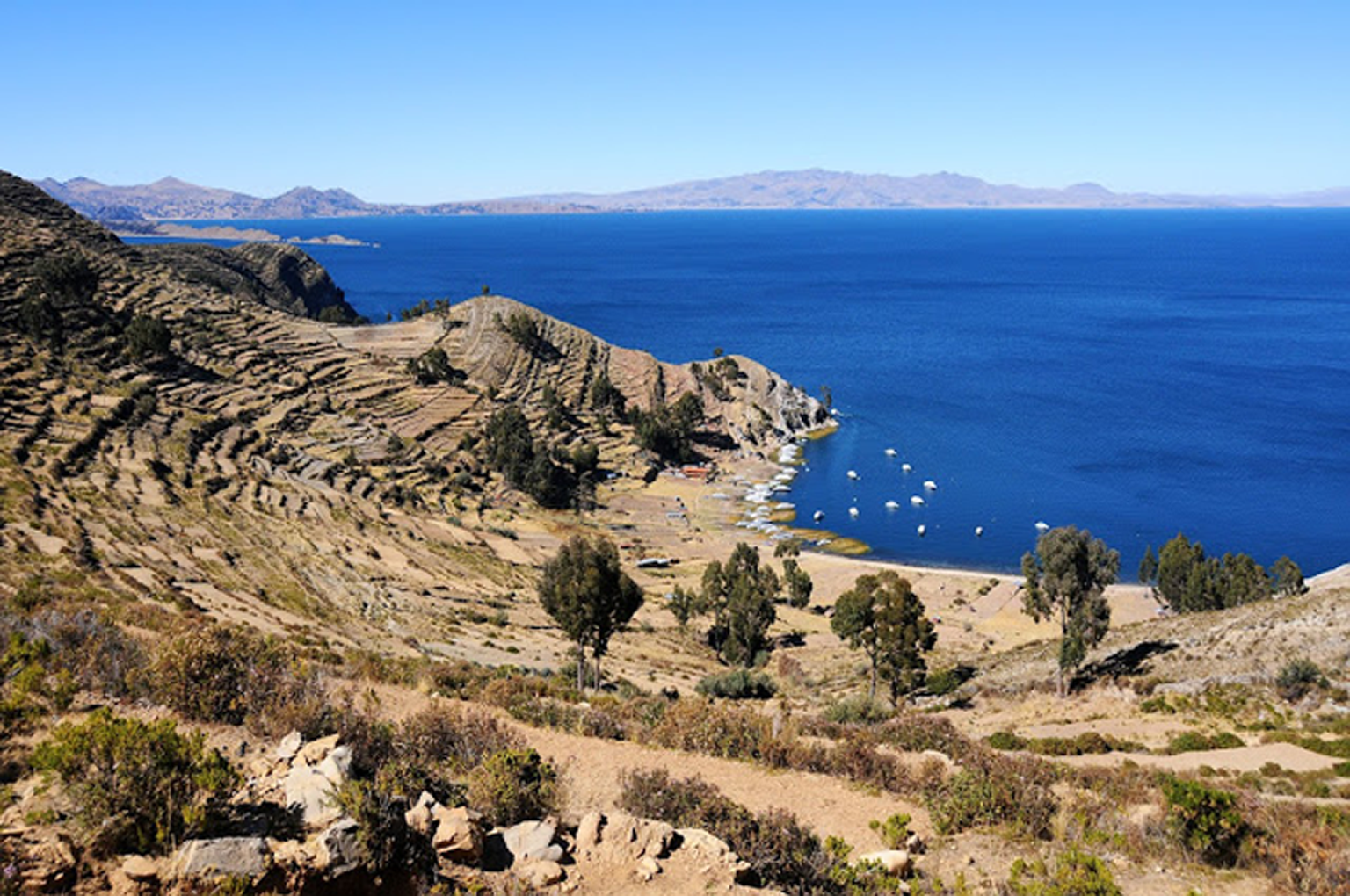- Posted by:
- anjci
- Under:
- Travel tales, Travel: Central Asia
Below is my story of visiting Awaza, Turkmenistan in September 2017.
I watched in horror as dirty orange water poured out of the tap and into the sink, my outstretched hands frozen in mid-air.
Suddenly the water stopped. The tap hissed violently several times into the (now) rusty looking sink, as if battling terrible contractions inside it. The water then coughed and resumed, getting lighter with every second but preserving enough tint to make me regret not bringing plenty of bottled water along.
With caution, I lifted the toilet seat and flushed. My fears were confirmed: the toilet was immediately flooded with murky brown water.
We had arrived at the Awaza Caspian resort.
The moment of truth: deserted Caspian Sea in late September

UNLIKELY SUMMER DESTINATION
Very few would associate the Caspian Sea with a beach holiday. Even fewer have heard of Awaza: despite being promoted as a prime holiday destination by Turkmen authorities, it was widely dubbed the “most ill-conceived resort ever built” soon after its inception.
It was Turkmenistan’s former president, Saparmurat Niyazov (better known as Turkmenbashi), who had the grand idea to turn a quiet “dacha” village near the port of Turkmenbashi into a world-class resort. Bulldozers swiftly rolled in: the first hotel in Awaza, called “Serdar”, opened in 2001 and was used to host events and summits on an international level. It would take another few years before tenders would be launched for further hotels, accompanied by vast resort infrastructure.
After Turkmenbashi’s sudden death in 2006, his successor Gurbanguly Berdimuhamedow took to the project with great ardour. The project now included 60 large hotels (17 of which have been built to date), a yacht club, a gas-fired power plant, a water desalination plant and a man-made river. The nearby airport of Turkmenbashi was equipped with a new runway and given an “international” status.
Unfortunately, the airport is yet to receive its first international passenger flight.
Pier restaurant: shut. Footprints on the sand: ours.

CRUMBLING DÉCOR IN THE CITY OF GHOSTS
Before arriving, I had imagined Awaza as a provincial holiday park by the beach – slightly quirky, but nothing to write home about.
The reality caught me completely off-guard. Faced with multiple marble-clad buildings rising dramatically from a flat landscape, with no cars on roads and no people in sight as far as the eyes could see, I could not help but feel lonely. For a resort virtually unknown outside Turkmenistan, the multi-million investment project looked dubious at best.
Our first room – a semi-luxurious option on the eighth floor – had the shower breaking through the tiles and nearly hanging off the wall. A polite “excuse me, our room is collapsing” call to the reception yielded an equally polite recommendation to choose any other room along the corridor. We settled on one at the opposite end of the eighth floor – the tiles there had been hastily patched up with plastic sheets but looked robust enough to survive another shower or two.
Our first room: note the sinking decorative wall

It was then that I discovered the rusty tap water. Blinking in disbelief, I looked helplessly at Alan.
‘Iron pipes,’ he shrugged.
The rest of the room did not look much better. The tacky gold-coloured décor running along the white TV stand had crumbled in places; some broken pieces sat in a careful pile under the TV. A large red stain and several smaller ones clashed with Turkmen-inspired traditional pattern on the fitted carpet. And, behind our double bed, the neat white wall had sunk in, revealing its scruffy inner layer. Despite having been built just four years ago in 2013, the hotel looked like it was falling slowly apart.
In fact, it seemed like everything we did met the hotel’s silent resistance. When I tried to make some tea, I discovered a couple of old teabags boiled solid into the electric kettle (disguised perfectly by its rusty walls). An attempt to switch from tap to shower mode had me almost break the entire shower system through the tiles (it was clear how it happened the first time). And the advertised “free” internet showed no signs of life. I am not sure why I ever expected otherwise.
Room with a view! I just can’t wait to run into that water.

MINUTES AWAY FROM OIL PROCESSING FACILITIES
Losing the battle with the hotel, we decided to hit the beach. Waves were breaking heavily on the nearest pier and not another soul was around. It was the coldest day since our arrival to Turkmenistan. Wearing all our clothes (we had not expected single digit temperatures in late September), we guessed that the swimming season was over.
The Caspian Sea does not exactly boast perfect beach resort climate: its warm spell is barely four months long, and sea temperatures remain moderate even at the peak of the season. And, climate aside, Awaza’s modest shallow beach would hardly win any prizes – especially against the well-established holiday destinations like Dubai, with which Awaza has been stubbornly compared by the Turkmen authorities for years.
This beach certainly reminded me of Dubai (right? right?)

Perhaps the main problem of Awaza is its proximity to oil refineries of Turkmenbashi and the notorious Soimonov Bay. Located almost at the entrance to Awaza, Soimonov Bay has for decades served as a wastewater and sewage dump site for the surrounding industrial installations. As a result, the bay holds the inglorious title of the most polluted body of water on the Caspian Sea. Two causeways separate the bay from the rest of the Caspian, but there is significant evidence of leakages of highly toxic liquids into the surrounding environment – just minutes away from the beaches of Awaza.
Our lukewarm impression of the beach was further ruined by the many bins by the shore overflowing with rubbish. It looked like they hadn’t been emptied for days, if not weeks. A little dog jogged in our direction, passed without much of a hello, and headed straight for the nearest pile of rubbish. After some determined digging, the dog reappeared – to my horror, parading a used ladies’ pad in its mouth. The one sight of Awaza I will always carry with me is one of a small dog triumphantly carrying a blooded hygienic product through a filthy beach and into an imposing hotel (where the dog lived).
Our hotel. Is this pool ever used?

The highlight of our visit to the beach was the sudden appearance of several (very drunk) Turkmen athletes. The Asian Indoor & Martial Arts Games 2017 had been held in Ashgabat only recently and finished a day before. Visibly enjoying letting off steam after a few stressful weeks, the athletes greeted us cheerfully and started posing for photos – only intercepted by the more sober person in their party who may have realised the possible consequences of such irresponsible behaviour. The chaps then raced to the water, peeled off their clothes (save for underpants) and ran happily into the Caspian. It was a delightful sight.
UNAFFORDABLE FOR LOCALS, INACCESSIBLE FOR FOREIGNERS
On our way back to the hotel, we passed abandoned playgrounds, empty swimming pools and shut restaurants. Beach toilets were locked, and the stench around them revealed that they had been locked for a long time. Perhaps Awaza had never opened at all?
I give up. Where are those roaring holiday crowds?

Back at the hotel, we were relieved to find the hotel restaurant open. Walking into it was like reliving a long forgotten part of my childhood: the one featuring functionalist Soviet-esque canteens with long rows of identical, impersonal tables. In this case, an attempt had been made to liven up the generic atmosphere with opulent velvet chair covers and marble floors, but they did little to take away a distinctly socialist feel to the establishment.
The hotel restaurant. Note the mandatory horse picture on the wall.

Our meals of fried fish took a while to arrive and were notably average. Only one Turkmen couple entered the restaurant while we were there; they departed after a bowl of soup and some tea. Most Turkmen people can ill afford a holiday in Awaza: a night’s stay in any of the hotels costs at least $70, while average disposable monthly salary in the country does not exceed $300-400.
Our meal of fried mugil and vegetables: extremely average

To put things into perspective, certain classes of Turkmen citizens can’t leave the country at all, and have the Caspian Sea as their only access to a beach. Still, few stay in Awaza’s overpriced hotels of their own accord. It is more common for “normal” Turkmen citizens to stay in (much cheaper) Turkmenbashi and drive to the Caspian beaches from there.
And as for foreign visitors? Personally, I cannot imagine why any foreigner would choose to spend their summer holiday in Awaza. The few foreigners Awaza receives tend to be tourist visa holders on broader tours of Turkmenistan. Lying out on a limb in the west of the country – and frankly fading against such sightseeing jewels as Darvaza and Mary – Awaza is not included in standard tours of Turkmenistan. Despite its “international” moniker, the Turkmenbashi airport does not have direct international flights, and getting to Awaza from abroad can be a pain.
Despite the decaying suroundings and hostile weather, it was nice to walk by the sea

Most importantly, the idea of a massive resort in Turkmenistan is incompatible with the country’s draconic visa policy. The rejection rate has been reported at over 90% for Russian applications; I have heard that Western travellers have higher chances of approval (and indeed was told to use my British passport over Latvian), but nothing is guaranteed. Travellers to Turkmenistan are not recommended to book flights before their visa is confirmed, so real is the risk of rejection.
DETOUR TO TURKMENBASHI
After finishing breakfast at the hotel restaurant – with no company besides each other – we attempted to pay the mandatory “tourist tax” at the reception. Recently introduced, the tax is payable at hotels (not homestays) and amounts to $2 per person per night. We were then planning to take the hotel shuttle to the airport to catch our flight, departing in 2 hours.
US dollars are effectively the currency of Turkmenistan’s tourism sector, and, generally, every large hotel in Turkmenistan stocks enough US dollar notes. Awaza was different. Given we were among only a handful of guests in a 120-room hotel – and the only foreigners – it was perhaps unsurprising that the reception did not have any change for our $10 bill.
Breakfast didn’t start before 9am and had been pre-made

Instead of offering one of many logical solutions to the situation – borrowing change at the hotel next door, accepting payment in manat at the official rate (which, after all, is the rate the authorities insist is the only correct one) or driving us to the airport and exchanging money there – the hotel insisted on driving us in a different direction, all the way back to Turkmenbashi. Upon arrival, a man in a long mackintosh boarded the bus, produced a collection of foreign currency notes and helpfully broke our $10 into smaller notes.
We were then allowed to continue to the airport, but not before the bus took a scenic route around Turkmenbashi to drop off some members of the staff. Since there are no residential buildings left in Awaza – they have all been destroyed by the authorities at the start of the construction boom, and former residents evicted – all hotel workers live elsewhere, most commonly in Turkmenbashi.
Goodbye, Mr. President!

We made it to the airport with minutes to spare. The glitzy new airport of Turkmenbashi was full of people departing for Ashgabat – many of them foreign athletes sightseeing after the Asian Games. I thought back to our last night in Awaza – its surreal silence and endlessly decadent feel, now contrasted vividly by the airport buzz. I remembered the rust-coloured tap water, the crumbling décor and the tiny dog carrying its unusual prey across an empty beach.
Awaza. What a surreal place.












Ewan says:
December 31, 2018 at 3:31 am
I have been reading about Turkmenistan travel for days now, and this is the first post that has been not only informative but also hilarious – and more than a little poignant. I will be following your writing from now on. Keep up the good work!
anjci says:
December 31, 2018 at 4:12 am
Thank you so much, Ewan – Awaza was certainly an experience ? try to visit if you can!
From free gas to photobomber president: Odd facts about Turkmenistan | ANJCI ALL OVER says:
December 16, 2018 at 6:55 pm
[…] have written about my surreal experience visiting Awaza here – this quickly became one of my most read posts in 2017, so do take a […]
Planning travel in Turkmenistan: Misunderstood corner of Central Asia | ANJCI ALL OVER says:
December 16, 2018 at 6:46 pm
[…] VISITING AWAZA: TURKMENISTAN’S SURREAL CASPIAN RESORT […]
2017 Newsletter | ANJCI ALL OVER says:
December 24, 2017 at 11:53 am
[…] READ MORE: VISITING AWAZA: TURKMENISTAN’S SURREAL CASPIAN RESORT […]
2017: Year in Pictures | ANJCI ALL OVER says:
December 20, 2017 at 9:02 am
[…] READ MORE: VISITING AWAZA: TURKMENISTAN’S SURREAL CASPIAN RESORT […]
Comments are closed.